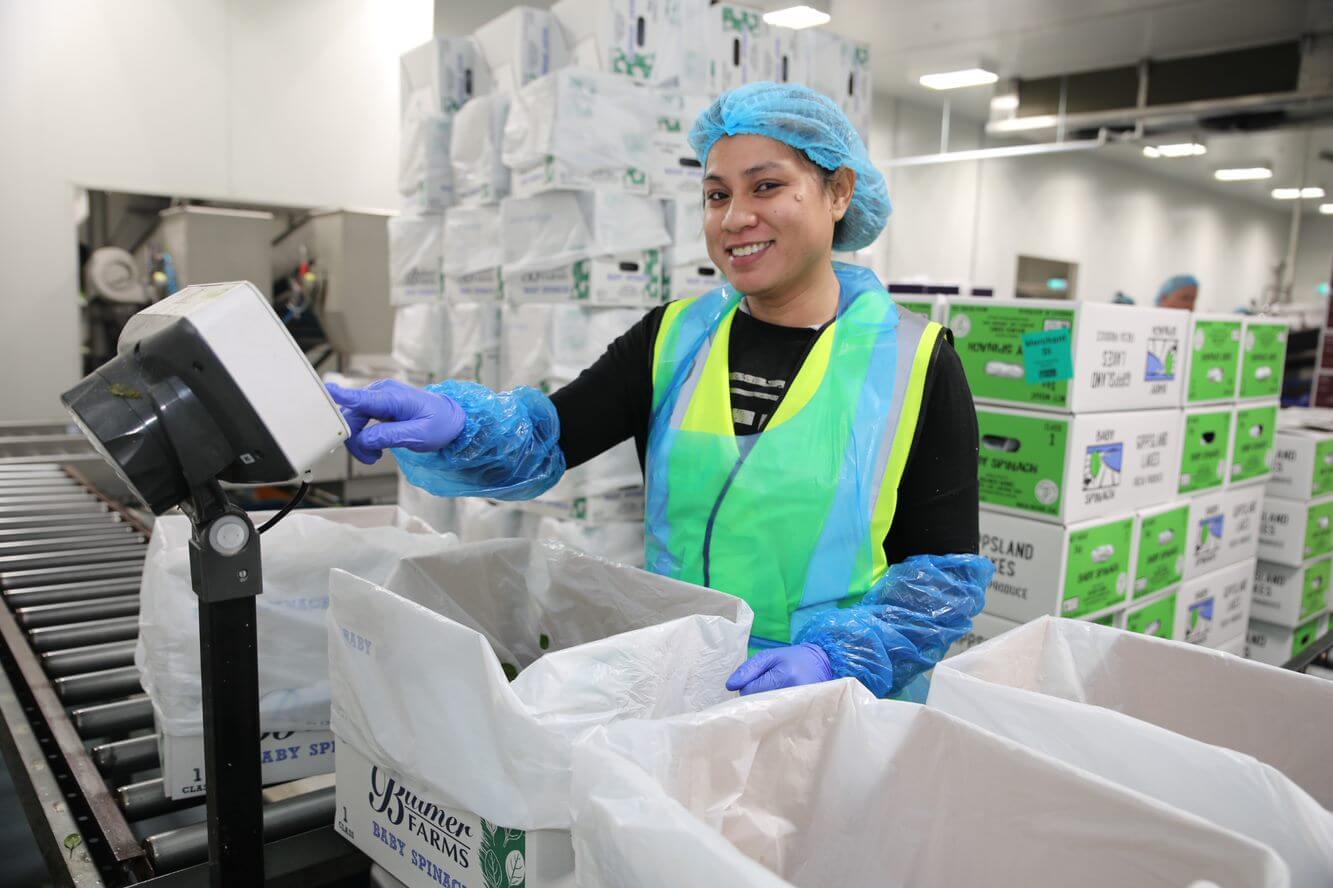Uncategorized
Labour Solutions
The PALM scheme allows eligible Australian businesses across a range of sectors to
hire workers from nine Pacifi c island countries and Timor-Leste when there are not enough local workers available.

Pacific Island Living
September 27, 2024Why recruit from Nauru?
Workers from Nauru have experience in labour mobility programs and specialise in security, welding and
fabrication work and other industries. Many have experience in transport and logistics operating dump trucks, front-end loaders, bulldozers, forklifts, and side loaders for containers.
Nauruan workers also are skilled in many areas of hospitality, and many have experience working for international contractors. Through labour mobility programs, some have worked in horticulture and
viticulture, pruning, and picking fruit, vegetables and grapes.
Tips for Australian recruiters
If you are considering employing Nauruan workers for your business, the fi rst step is to connect with the LMU via email to make formal introductions. If you plan to travel to Nauru for recruitment activities,
provide a minimum of six weeks’ notice to the LMU director and detail your purpose of travel. Incoming
passengers from Australia are required to have a valid visa, please contact the LSU regarding visa
arrangements.
Johnny’s journey to Australia
Johnny Cool has just arrived in Australia after being recruited to work in an aged care facility in Port Macquarie, NSW. “When you first apply you need to submit your resume and documents to the Labour
Mobility Unity (LMU) where you will also need to complete a registration form. The LMU and my training provider helped me prepare these documents.
“I had an interview with the LMU and told them that my objective was to save money to support my family and (renovate my house). After impressing the panel with his interview and passing a physical fi tness test, Johnny entered the work ready pool awaiting selection by a PALM scheme approved employer. It didn’t take long before he was noticed by his new employer who found he was the perfect match for their requirements.
Once Johnny received his off er of employment, his employer and the LMU ensured he was well prepared
for life in Australia. “My employer organised my visa while I had a medical examination to clear me for travel to Australia. “The LMU organised a pre-departure briefi ng for my colleagues which covered our contracts, employer and workers’ roles and responsibilities and living in Australia,” said Johnny.
Why recruit workers from Kiribati?
I-Kiribati workers are experienced in aged care, nursing, agriculture, horticulture, fisheries and maritime, hospitality and tourism, trade skills, technology and business sectors, as well as a range of other sectors/
industries.
I-Kiribati workers typically have good English and communication skills and are known for their empathy
and compassion, especially for the elderly, hardworking and committed people and easy to get along with.
Recruiting workers in Kiribati
The Kiribati Ministry of Employment and Human Resources, through its Labour Sending Unit is
responsible for assisting overseas employers recruit workers from Kiribati.
The LSU has been supporting I-Kiribati citizens to participate in labour mobility programs in Australia and
New Zealand for several years and has developed a well experienced cohort of staff to help overseas employers find suitable candidates to meet their business needs.
Each island council across the country will recommend suitable workers to the Ministry for RSE and PALM
schemes where they should complete English trainings and successfully pass fitness tests. Candidates will
undergo medical and criminal background checks. Tekotaake Keariki, senior labour officer at the LSU said
candidates undergo a robust screening process before being considered for selection.
“To be in the ministry’s work ready pool, candidates must complete five weeks of English training and pass a fitness test,” she said.
Once candidates have entered the work ready pool, the LSU will prepare the workers for interview with
employers and try to best align their skills with the requests of the employer. Ms Keariki said Kiribati is
well placed to adjust to the specific skills needs of employers.
The Kiribati Institute of Technology (KIT) provides tailor made courses suitable to meet the skills needs of
approved employers if the need arises”. “This means when Kiribati arrive in Australia, they are
ready to start working immediately”, she added.
KIT teaches courses in automotive, plumbing, electrical, solar technology and construction as well as accounting, bookkeeping, business, IT and hospitality. Former Director at KIT, Jason Flello said “One of KIT’s developments is the Certificate III in Individual Support, in partnership with industry in Australia.”
KIT works closely with industry and registered training organisations in Australia to deliver theory based
training for workers in Kiribati, before they complete the practical component in Australia and obtain Australian qualifications while working specifically in aged care.
Contacting the Ministry
The first step when employing I-Kiribati workers is to contact the Secretary via email (secretary@employment. gov.ki).
The Ministry through its LSU will require a minimum of 5-6 weeks to mobilise workers once a recruitment plan is approved. Forming good relations with the Ministry through LSU staff is essential to enable mutually beneficial outcomes for you, the Ministry and workers.
For employers, partnering with the Ministry through the LSU ensures they will be able to engage and support you to meet your recruitment requirements.
Once an employer has selected candidates from the work ready pool, interviews will be held, and successful candidates will receive a letter detailing the terms and conditions of their employment in Australia. Interviews for workers heading to New Zealand, are not carried out.
© 2024 Pacific Island Living Magazine all Rights Reserved
Website by Power Marketing